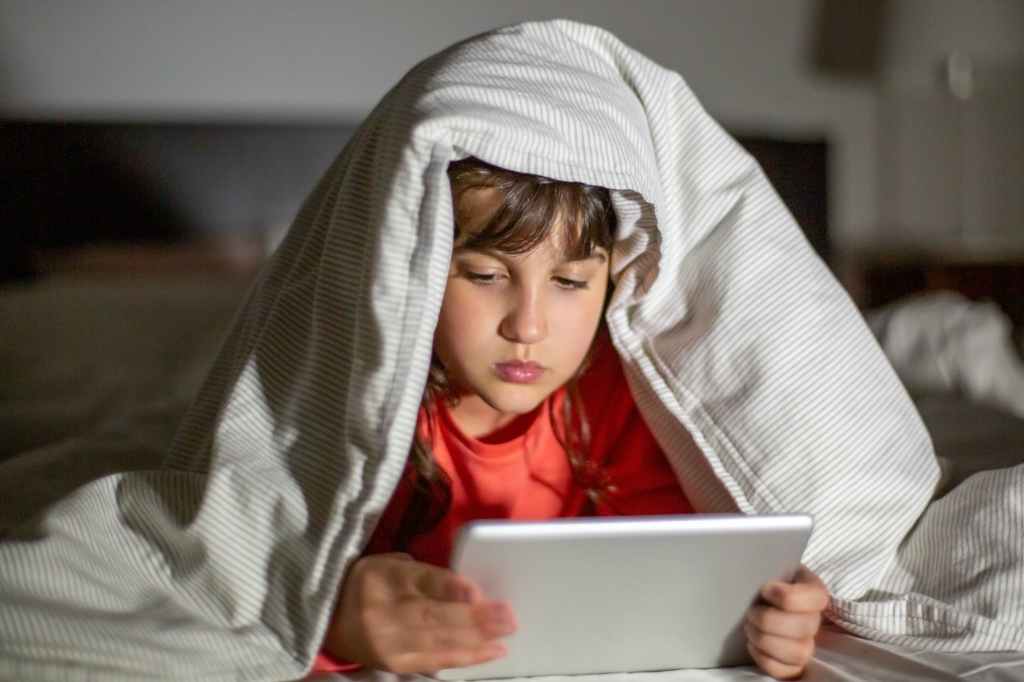
Parents in this modern age all face the same dilemma: how do we get our kids ready for the future while also protecting their eyes and brains from the harms of technology? We rounded up some current information for best practices for kids and tablets.
Screen Time and Brain Development
Excessive screen time has been linked to a delay in the development of critical thinking, attention, and problem-solving skills in children. The overstimulation from screens can interfere with a child’s ability to fall asleep and get enough quality sleep, which is essential for proper brain development and function. Screen time can also impact a child’s physical activity, which is important for the development of motor skills and coordination.
What Does Screen Time Do to Child Emotions?
Excessive screen time has been linked to increased symptoms of anxiety and depression in children and teens. The content of what children are viewing on screens can also affect their emotions. For example, exposure to violent or traumatic content can lead to fear, anxiety, and aggressive behavior.
Screens can also interfere with social and emotional development, as they often replace face-to-face interactions with family and friends.
It’s important to note that not all screen time is equal, and different types of activities may have different effects on children. For example, educational and interactive games can be beneficial for children’s development, while passive activities such as watching TV shows or videos can be less so. Therefore, it’s crucial for parents and caregivers to consider the type and amount of screen time their children are exposed to and to find a balance that works for their family.
Scientific Studies
In an article for The NY Times, author Perri Class explains that, “the message to parents, over and over and over, should not be either screens-are-bad, or you’re-a-bad-parent. The message should be: In the early years, you are so important, and good parenting involves being there, interacting, talking, playing, singing, asking and answering questions, and of course, reading. This is a high-tech way of reinforcing a low-tech message.”
Class worked with physicians to create “a new study using sophisticated brain scans found an association between screen use and the development of young children’s brains, especially in areas related to language development, reinforcing the messages about minimizing screen time for preschoolers.”
“Kids this age, they need human experiences for their brains to develop optimally and reinforce these tracts,” explains Dr. John S. Hutton, the director of the Reading and Literacy Discovery Center at Cincinnati Children’s Hospital. “We just really need to be careful about making sure kids have access to these same human interactive experiences that probably our brains are wired to require.”
Adolescent Brain Cognitive Development Study
Recently, researchers from the National Institutes of Health provided some insight into the effects of screen time on child brain development based on preliminary data from the Adolescent Brain Cognitive Development (ABCD) study. The study is following the progress of over 11,000 9- and 10-year-olds at 21 different locations across the United States. The study’s director, Gaya Dowling, PhD, presented the findings in December during a segment of CBS’ “60 Minutes.”
The initial results showed two key findings: MRI scans revealed notable differences in the brain structure of some children who reported using smartphones, tablets, or video games for more than seven hours a day.
And the second finding was that children who reported spending over two hours daily on screens scored lower on thinking and language tests.
These findings offer a glimpse into the impact of screen time on child brain development and highlight the importance of considering the amount and type of screen time children are exposed to.
Boredom is Good for Kids
While children may fidget without their devices, it’s also good for their emotional health. “Boredom is the space in which creativity and imagination happen,” says Pediatrician Michael Rich in an article for Harvard. ““It’s not how long we’re using screens that really matters; it’s how we’re using them and what’s happening in our brains in response,” he explains.
Rich also explains that the dangers of this technology may lie more in the programming of apps and websites than in the screens themselves.
“Virtually all games and social media work on what’s called a variable reward system, which is exactly what you get when you go to Mohegan Sun and pull a lever on a slot machine. It balances the hope that you’re going to make it big with a little bit of frustration, and unlike the slot machine, a sense of skill needed to improve.”
Tips for Digital Media and Kids
Sources:
https://hms.harvard.edu/news/screen-time-brain
https://www.nytimes.com/2019/11/04/well/family/screen-use-tied-to-childrens-brain-development.html

